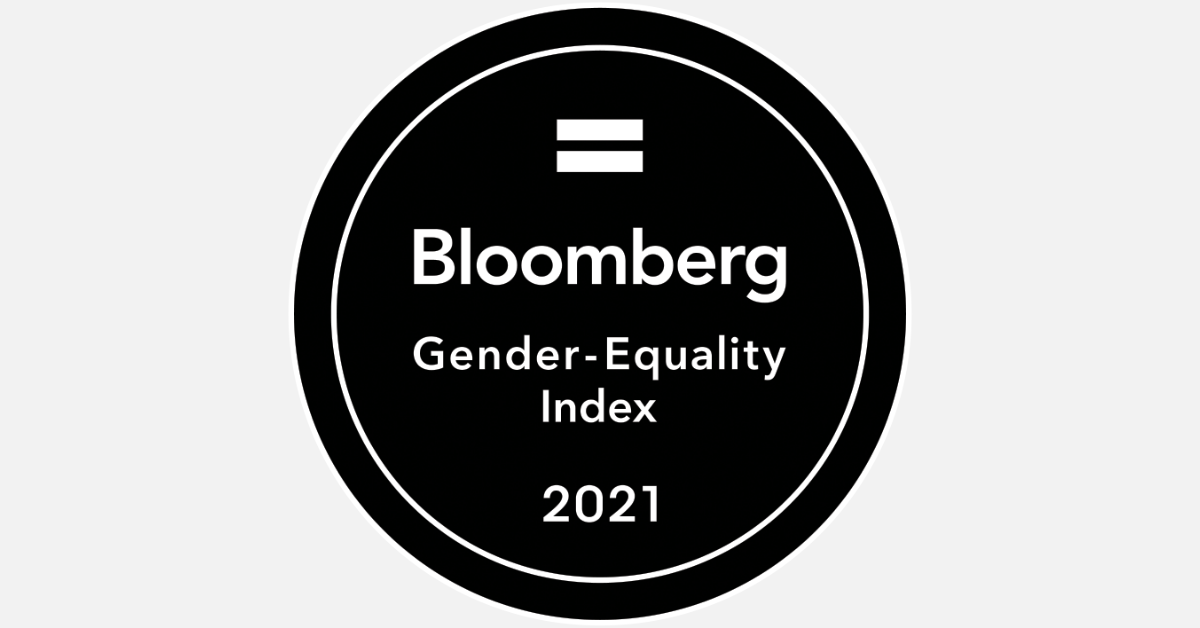A record number of companies disclosed ESG data to the Bloomberg Gender-Equality Index (GEI) this year, but there is still work to be done when it comes to the quality of that data.
The GEI’s standardised reporting framework allows investors to compare how companies around the world are investing in women in the workplace, the supply chain, and the communities in which they operate.
Despite raising the threshold for inclusion in the 2021 index, a record number of companies disclosed their data, and the quality of disclosure continues to improve. This year, GEI companies had a 94% disclosure score on average.
Although the average disclosure score was high, the average data excellence score was 55%, making it evident there is still work that needs to be done. The data excellence score is broken down into scores across five pillars: female leadership and talent pipeline, equal pay and gender pay parity, inclusive culture, sexual harassment policies, and pro-women brand.
This year 380 companies headquartered across 44 countries and regions are included in the 2021 GEI. For the first time, firms domiciled in Indonesia and Bermuda are reporting gender-related data.
See also: – Outlook 2021: What’s next on the D&I agenda?
Peter T. Grauer, chair of Bloomberg, said: “The companies included in this year’s Gender-Equality Index are committed to providing an inclusive work environment, supporting work-life balance and flexible work arrangements to retain a talented workforce and create a competitive advantage in this changing business environment.”
The companies included in this year’s index display a number of trends:
- Flexible working: 87% provide flexible working hours, with 85% offering flexible working locations.
- Closing gender gaps: On average, GEI members’ boards are comprised of 29% women, and 61% have a chief diversity officer or an executive with the primary responsibility of diversity and inclusion. The companies have an average of 39% of women in revenue-producing roles and more than half (52%) require a gender diverse slate of candidates for management positions.
- Fostering inclusion: On average, index member companies are hiring more women than they are losing, 69% of which have a strategy for recruiting women, and 59% conduct a global gender-based compensation review. Additionally, on average, 85% of employees returning after parental leave remain with their company with 65% of companies offering on-site lactation rooms and 46% providing childcare subsidies or other financial support.
- Inclusion beyond the workplace: More than half (60%) of index member companies sponsor financial education programmes for women and 64% sponsor programs dedicated to educating women in STEM.
“As businesses strive to maintain strong corporate cultures in today’s virtual world, business leaders have the opportunity to drive progress on gender equality for years to come,” said Patricia Torres, global head of Bloomberg Sustainable Finance Solutions.
Submitting data by using the Bloomberg gender reporting framework is voluntary and has no associated costs. The GEI is a reference index and is not for use as a financial benchmark. The index is not ranked. The firms included in this year’s index scored at or above a global threshold established by Bloomberg to reflect a high level of disclosure and overall performance across the framework’s five pillars.








